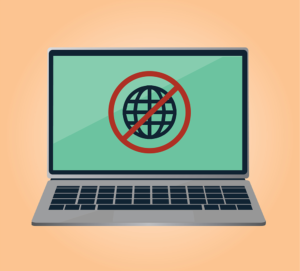By Jay Mackey

Information highway, world wide web, the internet — it’s been going by many names for as long as it has been around as a resource for all and a common ground for information, ideas and news to be shared. For decades, it has served as a medium that many people around the globe have connected and learned from each other and in its wake, technology has expanded dozens of times over to facilitate these connections via email, instant messaging and now video calling.
Up until now, the internet has been an open door, an endless road which people have used to discover new things. Essentially, anything you needed to know or anywhere you want to go could all be reached from your computer. In its essence, that ability to access everything on the web without it favoring or blocking anything is what is known as net neutrality. It is because of net neutrality that anyone can easily watch a YouTube video, get bored and binge a few episodes of “Stranger Things” on Netflix and then switch to their Hulu account and catch up on their favorite shows.
However, in the past year, the Federal Communications Commission (FCC) in the United States has made moves to end net neutrality by relabeling broadband internet as Title 1 instead of the Title 2 status it holds currently — identifying it as a common carrier or utility and allowing the FCC to enforce rules that prevent Internet Service Providers (ISPs) from throttling, slowing or altogether blocking content from potential competitors. The new FCC policy, according to chairman and director Ajit Pai, would instead “require internet service providers to be transparent about their practices so that consumers can buy the service plan that’s best for them and entrepreneurs and other small businesses can have the technical information they need to innovate.”
Pai argues that if an ISP were to decide to unfairly distribute their broadband speeds then the market (the consumers) would decide whether or not they will buy into that company or choose another that does not slow down speeds to sites will control the market. The problem? In most parts of the U.S. the amount of ISPs available are pitiful, and for many, there is only one option. The market has power when there are choices, but in many places, there is only one choice.
Despite a wealth of support for net neutrality and millions of people denouncing this plan, the FCC decided that they would still move forward. By doing so, ISPs such as Time Warner would be allowed to decide if they will “fast-lane” services like Hulu and slow the speed of other services like Netflix or YouTube unless these services and the consumer pay for the additional broadband speed. As of the time of my writing this, it would appear that net neutrality will end. All the while these ISPs, these companies, will be allowed to toll the roads of the world wide web for other competitors, allowing them to make more profit while independent innovation, new companies and services, and the everyday consumers are stifled. In the end, the rich and powerful continue the trend of becoming more rich and more powerful, but if there is any hope, it is that in the future things may change for the better.



























